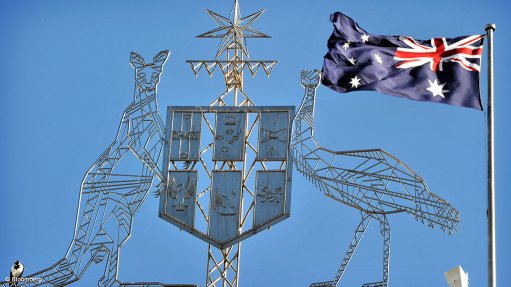
Photo by: Bloomberg
PERTH (miningweekly.com) – The Western Australian resources sector has welcomed the introduction of the Aboriginal Heritage Amendment Bill to Parliament, saying it would improve efficiency, decision-making, transparency and compliance in the development approvals process of major projects.
Aboriginal Affairs Minister Peter Collier said the Aboriginal Heritage Amendment Bill proposed modest changes to ensure Western Australia’s Aboriginal heritage could be properly protected.
“The current Act is outdated. It was drafted more than 40 years ago, before native title gave traditional owners the right in law to speak for their country,” Collier said.
“The changes are designed to improve efficiency in a system which is struggling under the weight of an antiquated approvals process, while at the same time protecting Aboriginal sites.”
The key reforms under the new Bill include increased penalties for those who damage or destroy Aboriginal heritage, including the possibility of prison time, the CEO of the Department of Aboriginal Affairs taking over responsibility for evaluating the significance of Aboriginal heritage places and objects, and a streamlined processes that would allow the CEO to issue declarations that no sites exist in particular areas, and permits to use land where no sites will be affected.
The Chamber of Minerals and Energy of Western Australia (CME) has welcomed the legislation, saying the industry body had long advocated for improvements to develop additional transparency and certainty in the Aboriginal heritage system.
CME CEO Reg Howard-Smith said recent reports had highlighted the significant costs and delays associated with the Aboriginal heritage approval process, which could amount to A$100-million a year.
“Reducing costs and improving efficiencies are vital to ensure we attract the next wave of investments,” said Howard-Smith.
“Both government and industry need to work together to ensure Western Australia remains an internationally competitive place to do business.”
The Association of Mining and Exploration Companies has also welcomed the Bill, with CEO Simon Bennison saying that the legislation not only provided clarity for the industry, but also protected Aboriginal heritage sites.
“The more efficient processes should result in a reduction in the current lengthy timeframes, particularly in completing heritage surveys and finalising heritage agreements.
“This should see a reduction in time and cost to stakeholders in completing surveys and agreements. Industry has indicated that the average daily cost of a heritage survey has increased by about 200% over the last three years alone, with only a small proportion being distributed to Aboriginal people,” Bennison said.
He noted that a reduction in timeframes would allow exploration companies to undertake work earlier on the tenement to establish whether there is any likelihood of making a discovery. If exploration was successful, it could then take several years before it develops into a producing mine.
“The quicker the exploration programme can be undertaken, without affecting cultural heritage sites and values in any way, the better for all concerned. Once a mine is operating, the affected Aboriginal people will then receive the flow-on social and economic benefits such as jobs and training.”